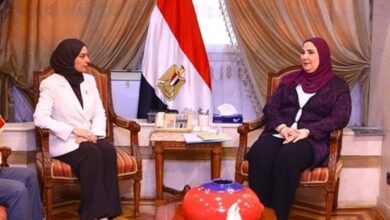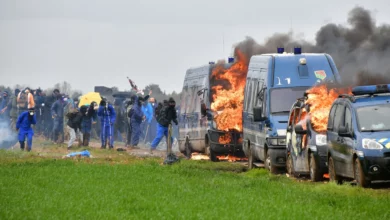Manama–Bahrain has charged 23 Shia activists with forming a "terror network" aimed at toppling the Sunni-dominated government, the official BNA news agency reported on Saturday.
The agency, citing the charge sheet, said the suspects allegedly held secret meetings in Bahrain and abroad in order "to change the political regime through illegal means."
It identified 10 suspects — including eight opposition figures under arrest since mid-August — describing them as "leaders of the terror network" and charging them of "undermining national security."
No immediate date for the trial has been given.
Chief suspect Abduljalil al-Singace, a leader of the opposition association Haq arrested on 14 August, was charged with "running an illegitimate network," as well as "leading sabotage cells… contacting foreign organisations and providing them with false and misleading information about the kingdom."
Seven other people, also arrested in mid-August, face similar charges and include Mohammed Saeed, a board member of the Bahrain Centre for Human Rights, as well as Sheikh Mohammed al-Moqdad — who is also known as Mohammed al-Saffaf — Sheikh Saeed al-Nuri, Abdulghani Ali Issa Khanjar, Jaffar al-Hessabi, Abdulhadi al-Mokhaider and Abdulla Isa Abdulla
Moqdad and Singace had been released from prison in April 2009 in a royal pardon for 178 people detained on security charges.
Saeed is also charged with receiving "financial support from foreign parties to achieve his illegitimate goals."
Two of the 10 suspects charged by the authorities are Husain Mashaima — the secretary general of Haq movement — and Saeed al-Sheehabi — secretary general of Bahrain Freedom Islamic Movement.
Both of them were not arrested as they live outside the country.
The charge sheet also includes the names of 13 other Shias accused of "joining the network… which aims to overthrow the government and change the political and social regime of the state… (by) illegal means."
Most of the suspects are members of Haq, or the Movement of Liberties and Democracy, a splinter group of the main Shiite political organisation, the Islamic National Accord Association INAA.
Bahrain is ruled by a Sunni dynasty but has a Shia majority population.
The archipelago state was plagued in the 1990s by a wave of Shia-led unrest which has abated since the authorities launched steps to convert the Gulf emirate into a constitutional monarchy.
On Wednesday, Human Rights Watch (HRW) urged the Bahraini authorities to investigate allegations of torture made by four of the activists.
Singace, told Bahrain's attorney general in late August that he had been tortured by security forces while in detention over the previous 15 days, HRW said.




